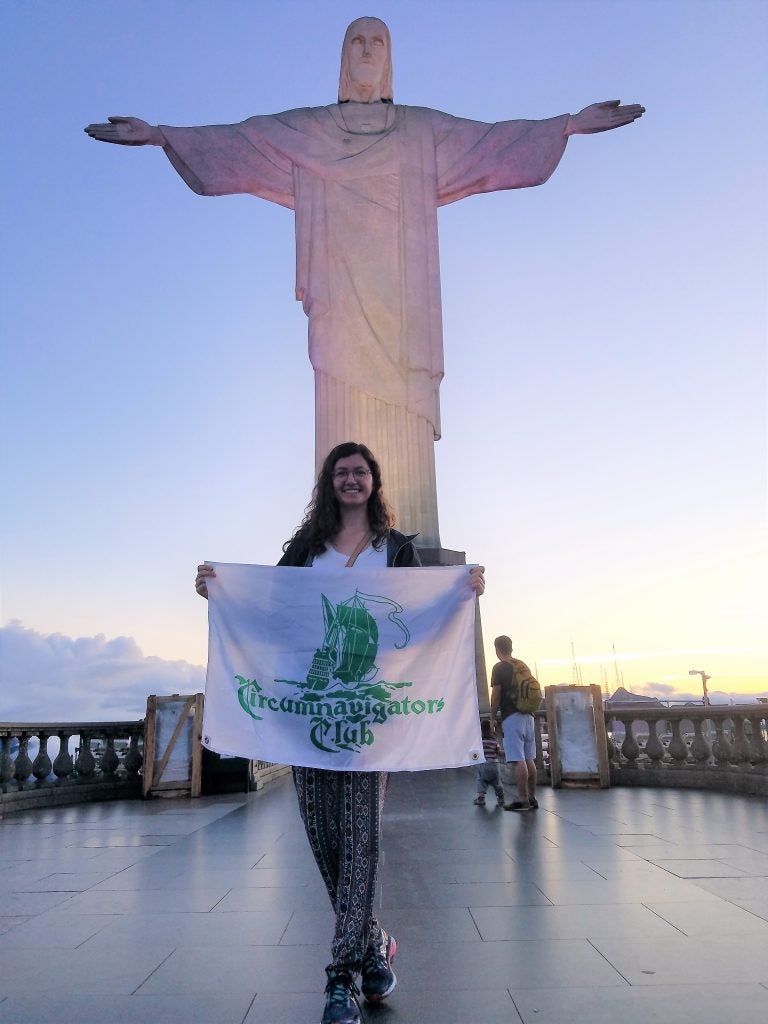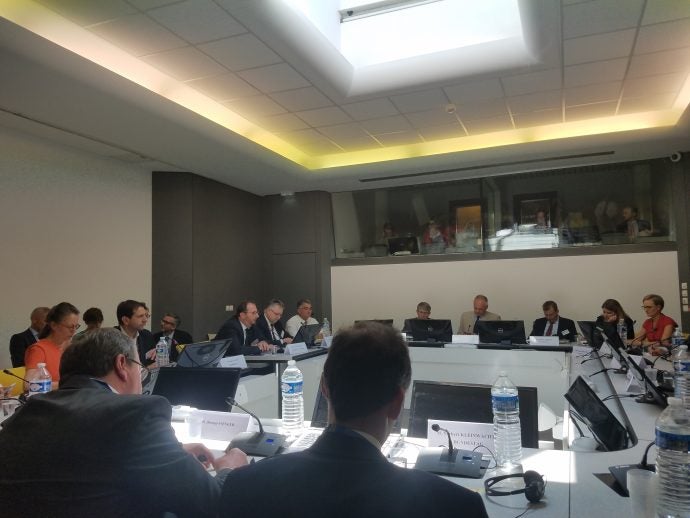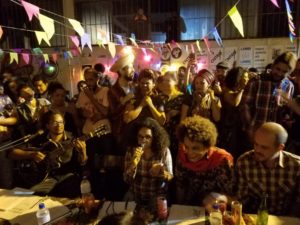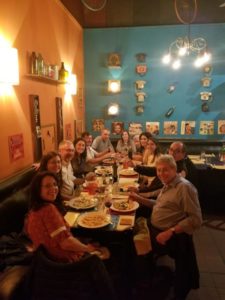
Ann-Kathrin Merz (SFS’19) had a once-in-a-lifetime adventure this summer! Merz travelled to nine countries on three different continents in 90 days conducting research on how regional organizations (ASEAN in Southeast Asia, the EU in Europe and Mercosur in South America) could mend regional rivalries and replace them with meaningful cooperation. Merz is the 2018 recipient of the Circumnavigator Grant, which is awarded annually to an SFS junior by the Circumnavigator’s Foundation and the SFS, funding an around-the-world research project on an international issue.
The inspiration for Merz’s research project began early in her time at Georgetown. “The seeds for my interest in regional organizations were sown in my first week of freshman year, when I attended Professor Kathleen McNamara’s book release event on the cultural politics of the European Union” says Merz. “She showed me that the European Union is not a boring bureaucracy, but a fascinating attempt to create a new political form.”
Professor Eric Langenbacher’s Comparative Political Systems class pushed these ideas further. “As we studied the development of the state, I stopped taking the political structures in our current world for granted. I became interested in questions as to whether this is the best way to organize societies and what other structures, such as international organizations, exist.”
After winning the grant, Merz reached out to several Georgetown professors who were instrumental for designing her trip. “Because the grant asks you to do something that you quite frankly can’t be prepared to do, you are forced to ask for help and grow as a result,” she says.

When thinking about her travels, Merz made concrete plans and schedules, but soon realized she could not maintain these. “I learned to adopt my project and change my strategy to make the most of my time and collect the most useful data possible. I saw the evolving nature of my research project as evidence of how much I am learning,” Merz explains. Learning how to be flexible enabled Merz to have some of the most rewarding experiences during her travels.“Since the best moments were unplanned, I no longer planned much when I arrived in a country. I tried my best to meet locals and see where it takes me,” she says.
The itinerary was significantly busier than Merz anticipated and the vast nature of the project meant she could not do it on her own. The most memorable moments came from the people she encountered, and the meaningful bonds she forged with locals, through new languages and even music.

“Speaking German, Spanish and French helped me tremendously on this trip both in making friends and conducting interviews—you don’t see a person’s true colors until you can understand them in their native language,” Merz says. “In Rio de Janeiro I became friends with a Basque man who did not speak perfect English, so we spent the day together alternating between Spanish and English. Or in Argentina, I conducted numerous interviews in German, which gave me a bond with the interviewee and some privacy in hectic office settings.”
Merz appreciated the reach of the Georgetown network during her travels. “Professors were able to help me set-up meetings with foreign government officials and diplomats, while students living or studying abroad gave me the insider tour of the places I visited or even let me stay with them,” she says.

One notable example came in Indonesia, when Merz accidently booked lodging in an unsafe neighborhood. “I am especially grateful to the Georgetown student who let me live with her for a week, despite barely knowing who I was….She took me in to her home at a time when I was overwhelmed and exhausted, making me feel at home in Jakarta in a way I would have never felt on my own.”
In reflecting on her experience, Merz believes she accomplished her biggest goal of growing as an individual. Advising future Circumnavigators, Merz urges them to live in the moment and remember to enjoy the experience, even though it sometimes can be overwhelming to do so.
“My advice would be to look beyond the research proposal and think about the other aspects of the trip, like adventure and social interaction. For adventure, make sure you include small side-trips and leave space in your itinerary for spontaneity. You’ll also be traveling alone, which can become intense. I recommend including at least one country where you have friends or family. For me, I visited my grandparents in Germany. After six weeks alone, a long hug from my grandmother was exactly what I needed.”
Looking forward, Merz already has some plans for what she hopes to do, but is keeping an open mind.
“I have a few concrete ideas of what I would like to do, but we will see where the next year takes me. This trip has taught me to appreciate the unknown; it leaves room for unexpected opportunities.”
